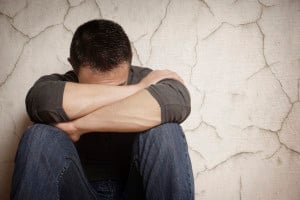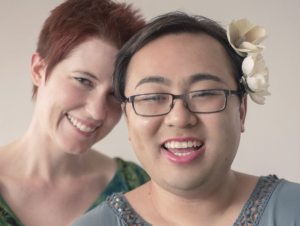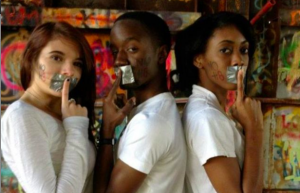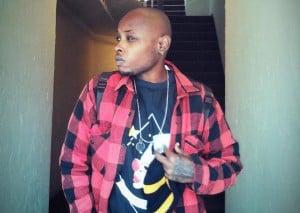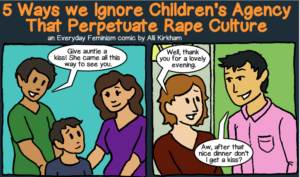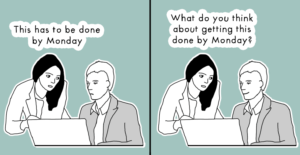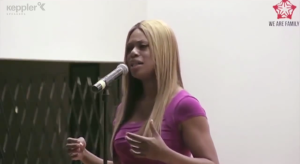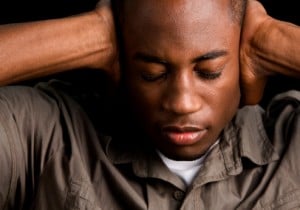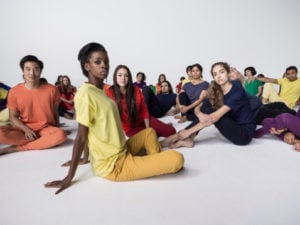Originally published on Role/Reboot and cross-posted here with their permission.
Lynn Beisner explains the difference between the two phrases “The best choice for both my mother and me would have been abortion” and “I wish I had never been born.”
If there is one thing that anti-choice activists do that makes me see red, it is when they parade out their poster children: men, women, and children who were “targeted for abortion.” They tell us “these people would not be alive today if abortion had been legal or if their mothers had made a different choice.”
In the past couple of months, I have read two of these abortion deliverance stories that have been particularly offensive. The first story is one propagated by Rebecca Kiessling, the poster child for the no exceptions in cases of rape or incest. On her website Kiessling says that every time we say that abortion should be allowed at least in the case of rape or incest we are saying to her: “If I had my way, you’d be dead right now.” She goes onto say, “I absolutely would have been aborted if it had been legal in Michigan when I was an unborn child, and I can tell you that it hurts [when people say that abortion should be legal.]”
The second story was on the Good Men Project this week. In an article entitled, “Delivered From Abortion: Healing A Forgotten Memory,” Gordon Dalbey tells a highly unlikely story about his mother’s decision to abort him and her eventual change of heart. I say that the story is highly unlikely because the type of abortion he says his mother was about to have was not available until 50 years later. However, Dalbey claims to have recovered a memory of being “delivered” from the abortion because as a fetus he cried out to God. He claims that the near-abortion experience had caused him psychological suffering throughout his life. Since recovering the memory, he has experienced survivor’s guilt because he was saved when so many other fetuses have been aborted. In explaining how he overcame this guilt, he quotes a Jewish survivor of the Holocaust who says that the purpose of surviving is to testify to the experience.
What makes these stories so infuriating to me is that they are emotional blackmail. As readers or listeners, we are almost forced by these anti-choice versions of A Wonderful Life to say, “Oh, I am so glad you were born.” And then by extension, we are soon forced into saying, “Yes, of course, every blastula of cells should be allowed to develop into a human being.”
Stories like Mr. Dalbey’s are probably effective because they follow the same model. First there is a woman facing the unplanned pregnancy that poses severe problems. In Dalbey’s case, his family is suffering from extreme poverty, and in the case of Kiessling, her mother is dealing with the aftermath of rape. The story shifts so that the mother has a divine or moral enlightenment and knows that she must carry the baby to term. We are left with an adult praising the bravery of their mothers and testifying that their lives were saved for some higher purpose. But the story goes on to tell us how even the contemplation of abortion was horribly scarring for the person. The moral of these stories is clear: Considering abortion is like considering genocide.
Here is why it is so effective: People freak out when you tell an opposing story. I make even my most ardent pro-choice friends and colleagues very uncomfortable when I explain why my mother should have aborted me. Somehow they confuse the well-considered and rational: “The best choice for both my mother and me would have been abortion” with the infamous expression of depression and angst: “I wish I had never been born.” The two are really very different things, and we must draw that distinction clearly.
The narrative that anti-choice crusaders are telling is powerful, moving, and best of all, it has a happy ending. It makes the woman who carries to term a hero, and for narrative purposes, it hides her maternal failing. We cannot argue against heroic, redemptive happy-ending fairy tales using cold statistics. If we want to keep our reproductive rights, we must be willing to tell our stories, to be willing and able to say, “I love my life, but I wish my mother had aborted me.”
An abortion would have absolutely been better for my mother. An abortion made it more likely that she would finish high school and get a college education. At college in the late 1960s, it seems likely that she would have found feminism or psychology or something that would have helped her overcome her childhood trauma and pick better partners. She would have been better prepared when she had children. If nothing else, getting an abortion would have saved her from plunging into poverty. She likely would have stayed in the same socioeconomic strata as her parents and grandparents who were professors. I wish she had aborted me because I love her and want what is best for her.
Abortion would have been a better option for me. If you believe what reproductive scientists tell us, that I was nothing more than a conglomeration of cells, then there was nothing lost. I could have experienced no consciousness or pain. But even if you discount science and believe that I had consciousness and could experience pain at six gestational weeks, I would chose the brief pain or fear of an abortion over the decades of suffering I endured.
An abortion would have been best for me because there is no way that my love-starved trauma-addled mother could have ever put me up for adoption. It was either abortion or raising me herself, and she was in no position to raise a child. She had suffered a traumatic brain injury, witnessed and experienced severe domestic violence, and while she was in grade school she was raped by a stranger and her mother committed suicide. She was severely depressed and suicidal, had an extremely poor support system, was experiencing an unplanned pregnancy that resulted from coercive sex, and she was so young that her brain was still undeveloped.
With that constellation of factors, there was a very high statistical probability that my mother would be an abusive parent, that we would spend the rest of our lives in crushing poverty, and that we would both be highly vulnerable to predatory organizations and men. And that is exactly what happened. She abused me, beating me viciously and often. We lived in bone-crushing poverty, and our little family became a magnet for predatory men and organizations. My mother found minimal support in a small church, and became involved with the pastor who was undeniably schizophrenic, narcissistic, and sadistic. The abuse I endured was compounded by deprivation. Before the age of 14, I had never been to a sleep-over, been allowed to talk to a friend on the phone, eaten in a restaurant, watched a television show, listened to the radio, read a non-Christian book, or even worn a pair of jeans.
If this were an anti-choice story, this is the part where I would tell you how I overcame great odds and my life now has special meaning. I would ask you to affirm that, of course, you are happy I was born, and that the world would be a darker, poorer place without me.
It is true that in the past 12 years, I have been able to rise above the circumstances of my birth and build a life that I truly love. But no one should have to make such a Herculean struggle for simple normalcy. Even given the happiness and success I now enjoy, if I could go back in time and make the choice for my mother, it would be abortion.
The world would not be a darker or poorer place without me. Actually, in terms of contributions to the world, I am a net loss. Everything that I have done—including parenting, teaching, researching, and being a loving partner—could have been done as well if not better by other people. Any positive contributions that I have made are completely offset by what it has cost society to help me overcome the disadvantages and injuries of my childhood to become a functional and contributing member of society.
It is not easy to say, “I wish my mother had aborted me.” The Right would have us see abortion as women acting out of cowardice, selfishness, or convenience. But for many women, like my mother, abortion would be an inconvenient act of courage and selflessness. I am sad for both of us that she could not find the courage and selflessness. But my attitude is that as long as I am already here, I might as well do all I can to make the world a better place, to ease the suffering of others, and to experience love and life to its fullest.
Lynn Beisner is the pseudonym for a mother, a writer, a feminist, and an academic living somewhere East of the Mississippi. You can find her on Facebook and Twitter.
Search our 3000+ articles!
Read our articles about:
Our online racial justice training
Used by hundreds of universities, non-profits, and businesses.
Click to learn more







